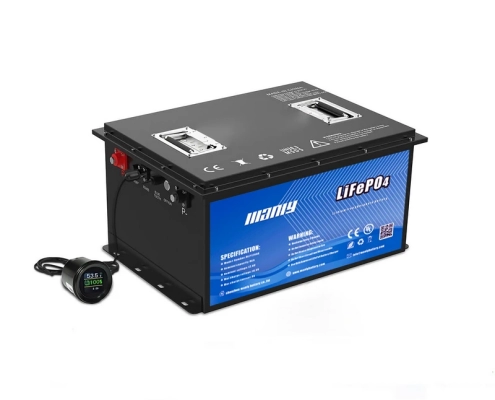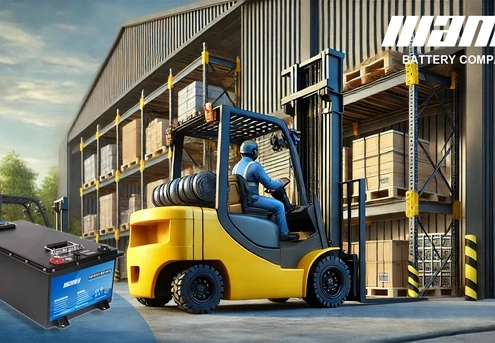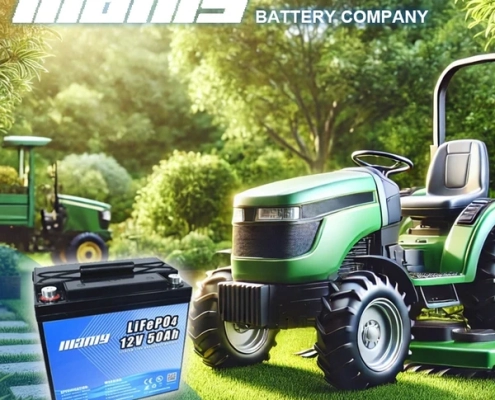2024 How Long Do 48 Volt Golf Cart Batteries Last?
Table of Contents
- 2024 How Long Do 48 Volt Golf Cart Batteries Last?
- What Type of Batteries Do Golf Carts Use?
- What is the Range of a 48 Volt Golf Cart?
- Common Brands Offering 48 Volt Golf Cart Batteries
- Factors Affecting the Lifespan of 48 Volt Golf Cart Batteries
- Maintenance Tips for Extending the Lifespan of 48 Volt Golf Cart Batteries
- Conclusion
- Learn More About Battery
Typically, lithium-ion 48 volt golf cart batteries last 8 to 10 years with proper maintenance, while lead-acid options offer a lifespan of around 4 to 6 years. The longevity of these batteries depends on factors such as battery type, usage patterns, and consistent maintenance. Lithium-ion batteries generally offer a longer service life due to their resilience against deep discharges and lower maintenance requirements compared to traditional lead-acid alternatives.
High-quality 48 volt golf cart batteries can significantly enhance performance and reduce downtime when well cared for. By choosing the right battery type and following recommended maintenance practices, golf cart users can enjoy reliable, extended use in a variety of applications, from recreational driving to commercial use. This guide explores essential tips on selecting, using, and maintaining 48 volt golf cart batteries to ensure you get the maximum lifespan and value from your investment.
What Type of Batteries Do Golf Carts Use?
When selecting 48 volt golf cart batteries, two primary types stand out: lead-acid and lithium-ion. Each type offers unique benefits and drawbacks that impact their longevity, maintenance requirements, and overall performance.
- Lead-Acid Batteries
Lead-acid batteries are a traditional choice in the golf cart industry due to their lower upfront costs. However, they usually last 4 to 6 years with regular maintenance, which includes checking water levels, cleaning terminals, and ensuring consistent charging after each use. Lead-acid batteries are more sensitive to deep discharges, which can reduce their lifespan, and they tend to weigh more than lithium alternatives, affecting golf cart performance on slopes and rough terrain. - Lithium-Ion Batteries
Lithium-ion batteries, particularly Lithium Iron Phosphate (LiFePO4) models, are popular for their long lifespan, which can reach 8 to 10 years or even longer with proper care. They are significantly lighter than lead-acid batteries and require less maintenance, as they do not need water level checks or frequent cleaning. Lithium-ion batteries are equipped with advanced battery management systems (BMS), which optimize charging and protect against over-discharge and overcharge, thereby extending their lifespan. This advanced technology makes lithium-ion batteries an ideal choice for users seeking reliability and performance.MANLY Battery, a leading battery manufacturer, is renowned for producing high-quality LiFePO4 batteries with extended lifespans and enhanced safety features. Their commitment to durability is supported by global certifications like UL and CE, and they offer a 10-year warranty, reflecting their confidence in product longevity.
- Performance and Longevity Comparison
For those seeking long-term reliability, lithium-ion batteries, though more expensive upfront, prove to be more cost-effective due to their reduced maintenance needs and longer lifespan. In contrast, lead-acid batteries may be more budget-friendly initially but require consistent upkeep and may need to be replaced sooner. MANLY Battery’s lithium options are designed to withstand extreme temperatures and maintain high efficiency, making them a preferred choice for users who want optimal performance in various environments.
48 volt Golf Cart Batteries Range Comparison Table:
| Lithium Battery | Stock | Modified | Heavily Modified | |||
| 2 Passenger Non-lifted Controller up to 350A Stock gearing Flat terrain | 4 Passenger Lifted up to 23″ tires Controller up to 450A Stock gearing Moderate terrain | 4 to 6 Passenger Lifted up to 23″ tires Controller up to 600A High speed gearsSteep terrain | ||||
| Estimated Range | Expected Range After 8-10 Years | Estimated Range | Expected Range After 8-10 Years | Estimated Range | Expected Range After 8-10 Years | |
| 48v 160AH | 50-70 Miles | 40-55 Miles | 40-60 Miles | 32-48 Miles | 35-50 Miles | 28-40 Miles |
| 48V 105AH | 30-45 Miles | 24-36 Miles | 20-35 Miles | 16-28 Miles | 20-30 Miles | 16-24 Miles |
| Lead Acid Battery | Stock | Modified | Heavily Modified | |||
| 2 Passenger Non-lifted Controller up to 350A Stock gearing Flat terrain | 4 Passenger Lifted up to 23″ tires Controller up to 450A Stock gearing Moderate terrain | 4 to 6 Passenger Lifted up to 23″ tires Controller up to 600A High speed gearsSteep terrain | ||||
| Estimated Range | Expected Range After 3-5 Years | Estimated Range | Expected Range After 3-5 Years | Estimated Range | Expected Range After 3-5 Years | |
| 48V 160AH | 20-30 Miles | 12-18 Miles | 15-25 Miles | 9-15 Miles | Not Recommended | Not Recommended |
| 48V 105AH | 20-30 Miles | 12-18 Miles | 15-25 Miles | 9-15 Miles | Not Recommended | Not Recommended |






